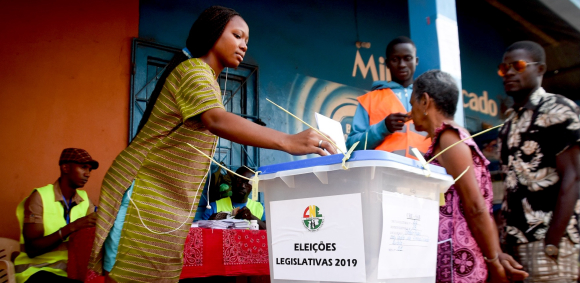The Trump administration is reportedly weighing a significant expansion of its controversial travel restrictions to include 25 additional African nations, raising concerns over diplomatic relations and potential socioeconomic consequences. Among the countries mentioned in reports by The Washington Post and The New York Times are some of Africa’s largest and most strategically important states, including Nigeria, the Democratic Republic of Congo, Egypt, Ethiopia, and Angola.
This potential move signals a return to stricter immigration policies reminiscent of the 2017 “Muslim Ban” that targeted several majority-Muslim countries, including Sudan, Somalia, and Libya. U.S. officials have cited various reasons for the proposed expansion, including concerns about document integrity, national security, anti-Semitic sentiments, and high rates of visa overstays. However, critics argue the rationale is inconsistent and potentially discriminatory.
For example, according to a 2023 Department of Homeland Security (DHS) report, 400 Chadian nationals, nearly 49.5% of visitors from Chad, overstayed their U.S. visas. Similarly, Equatorial Guinea saw 200 overstays, amounting to 21.9%. In contrast, the same report showed that 20,000 visitors from Spain and 15,000 from the United Kingdom overstayed their visas, though with much lower rates of 2.4% and 0.4%, respectively. These statistics have raised questions about the criteria being used to target African countries disproportionately.
Nigeria, Africa’s most populous country and a key U.S. trading partner, has expressed concern over any move that could restrict travel or affect its citizens. Diplomatic ties with countries like Egypt and Ethiopia could also suffer if the restrictions go into effect, especially given their central roles in regional stability and security.
One reported way for affected countries to be removed from the proposed list is by signing agreements with the United States to act as “safe third countries,” meaning they would accept asylum seekers or deportees from other nations. These controversial deals, previously attempted with countries in Latin America, have sparked criticism from human rights organizations.
The Biden administration had eased many of Trump’s immigration and travel policies during its term, including lifting some of the travel bans and restoring visa services to previously affected nations. A renewed enforcement or expansion of travel bans under Trump, should he win a second term, would represent a sharp reversal of those policies and could lead to broader implications for Africa-U.S. relations, global mobility, and international diplomacy.














Leave a comment